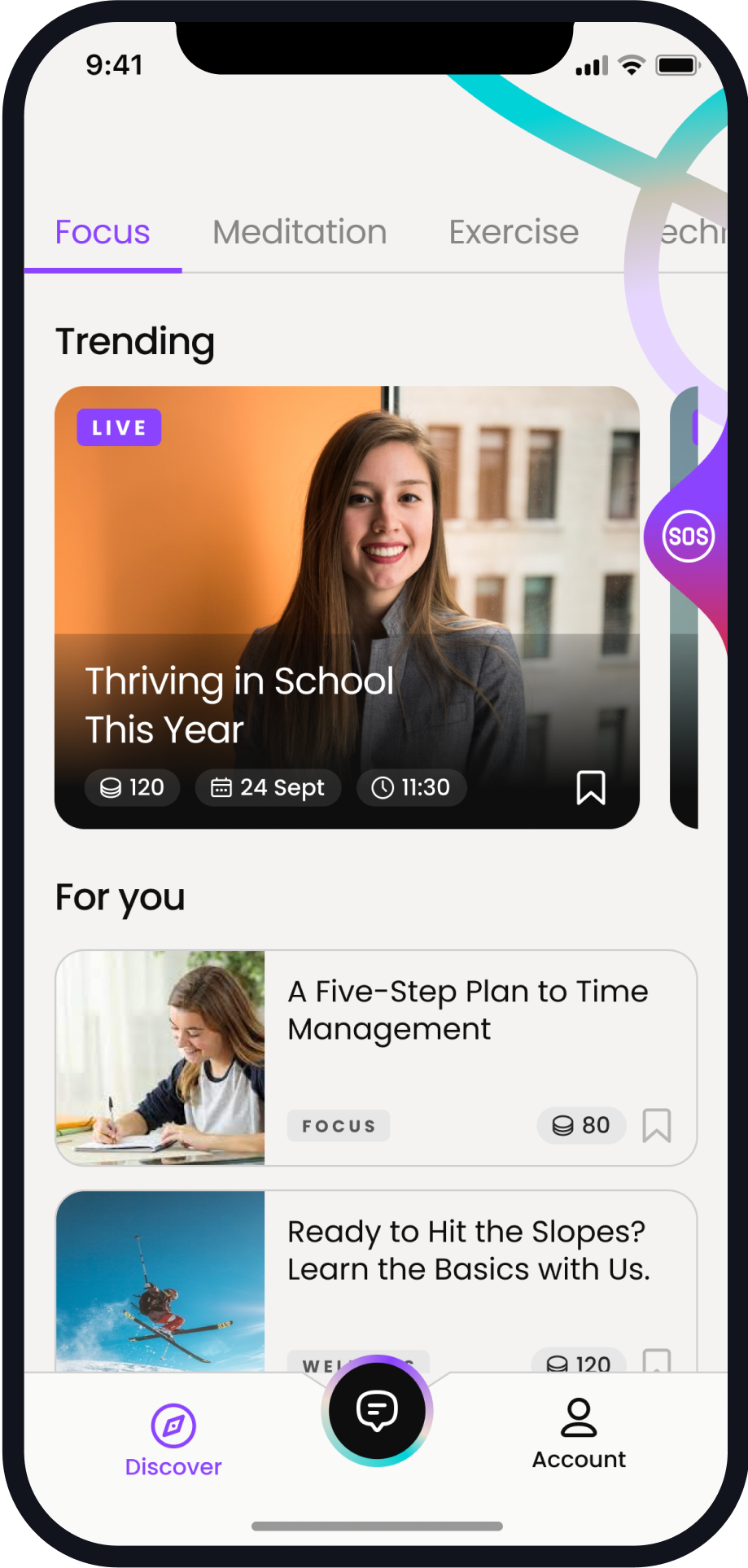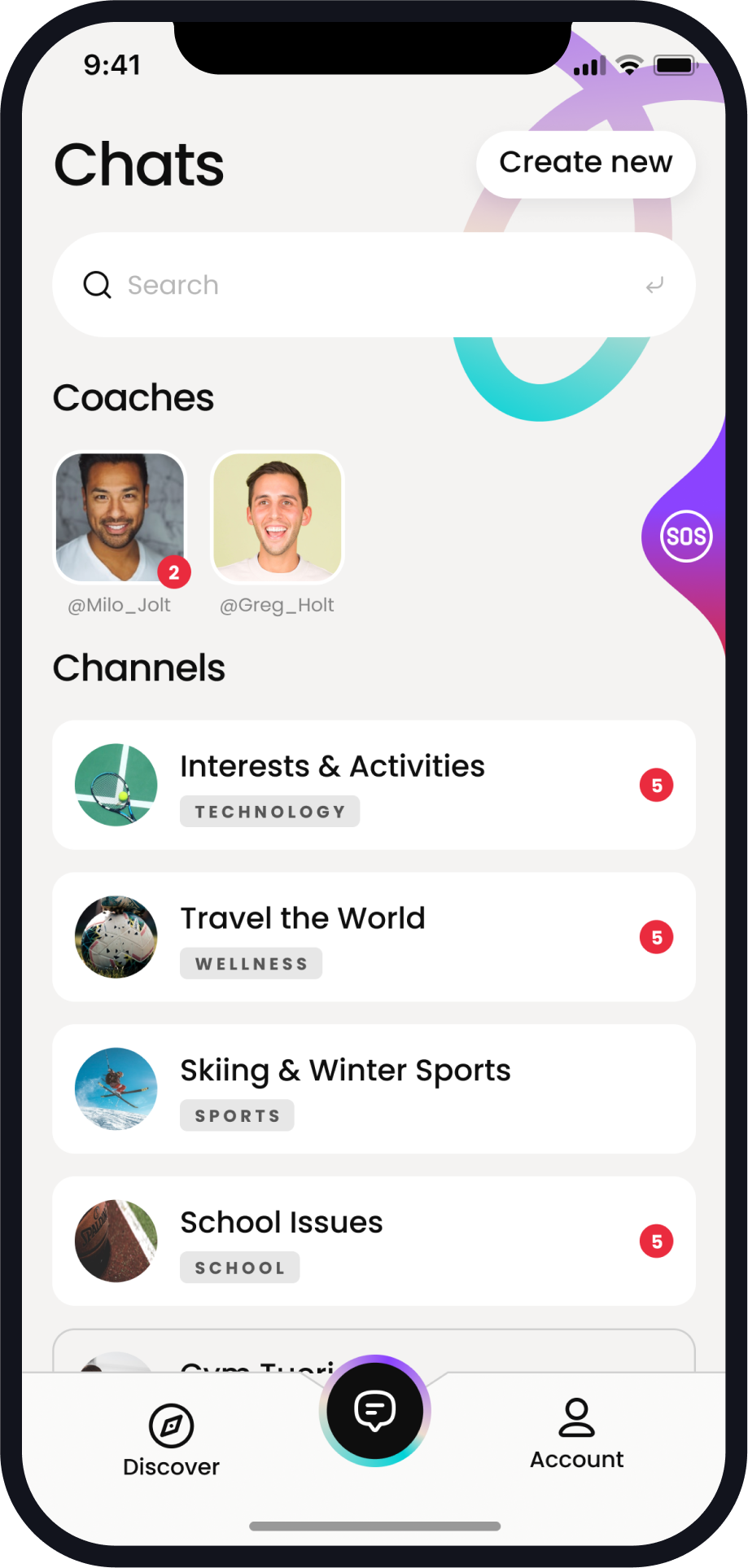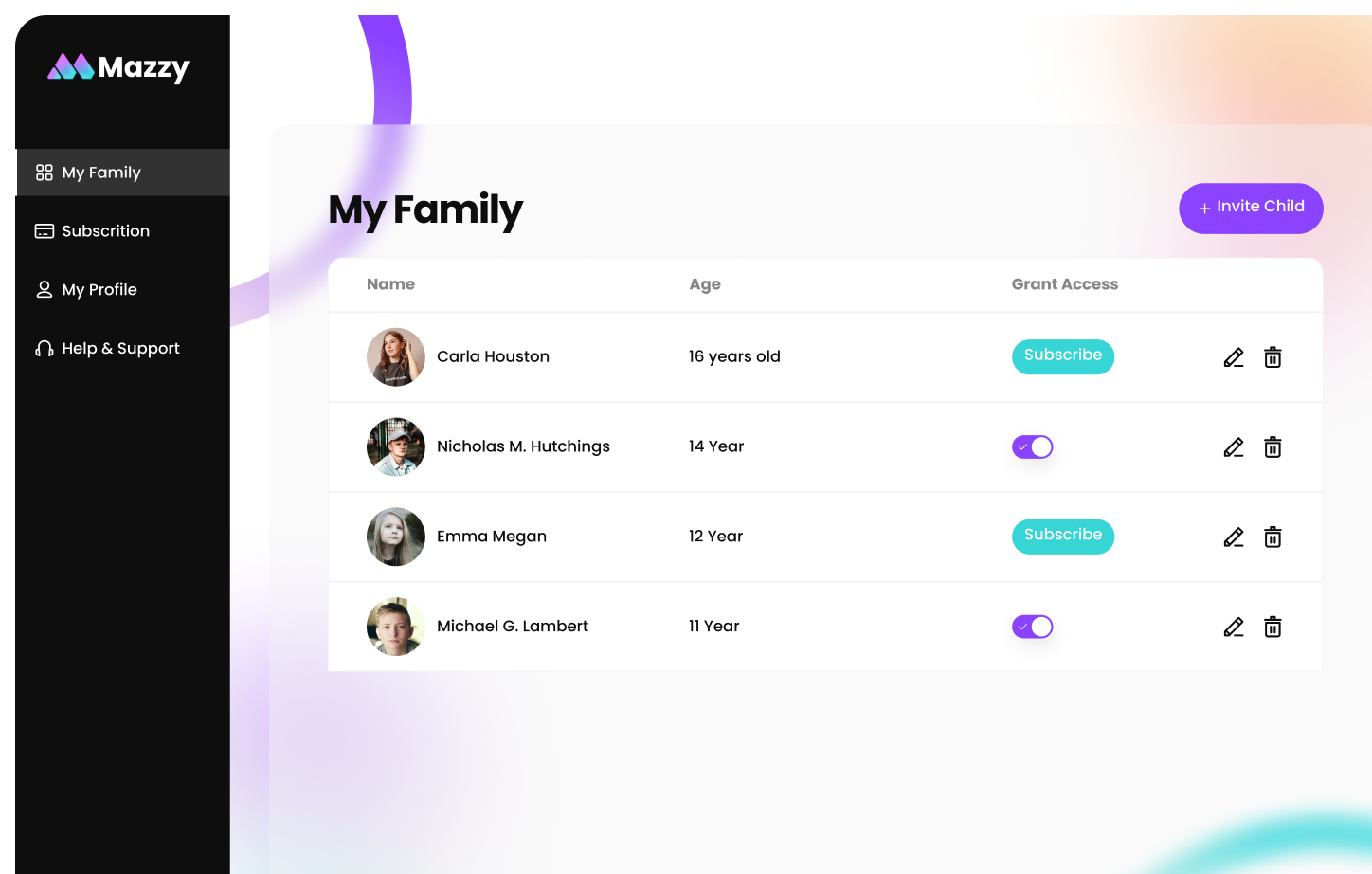- 4x 30min sessions per month
- 30min monthly parent session
- Full access to community and resources
Mazzy provides 1:1 coaching with a licensed therapist, live and on-demand classes on topics of interest, and a professionally moderated community to discuss relevant topics for your 10-18 year old.




Schedule a time to speak with a Mazzy team member to see how we can help.



Tweens and teens receive weekly "coaching" sessions with a licensed adolescent therapist

Your child can interact in a safe, moderated online community about their favorite topics while exploring physical, emotional, and mental wellness

A library of live and on-demand activities includes sleep stories, yoga, “walk and talks,” cooking classes, and more. Prepare for Homecoming with the former dance captain of Disney's The Lion King on Broadway, or follow along with Mecca Amen as you learn to cook Tilapia.

Our PhD and MSW licensed therapists use evidence-based approaches with proven effectiveness

Numerous studies prove that these interventions can be highly effective online[1]







You have the option to meet monthly with a licensed adolescent therapist to answer any of your questions

It takes a team to raise a teen. We're here for you.
Review and purchase a plan below, or book a consultation with us to learn more.
Recommended for teens 15+ with more complex inquiries
Already subscribed? Log in to view your account, meet with your coach, and more.



Sign up below to receive our Quarterly Tween and Teen Wellness Report
© Copyright 2022, All Rights Reserved



